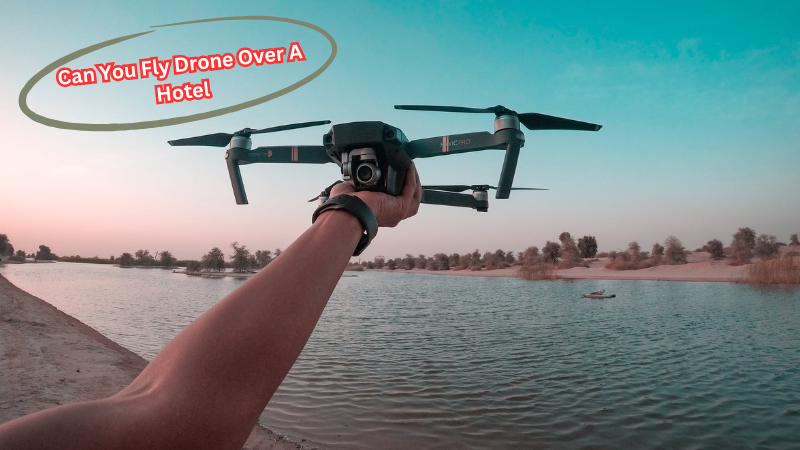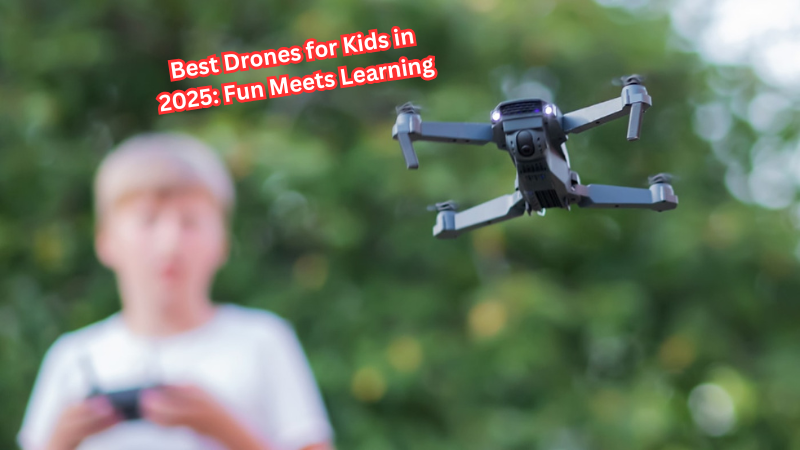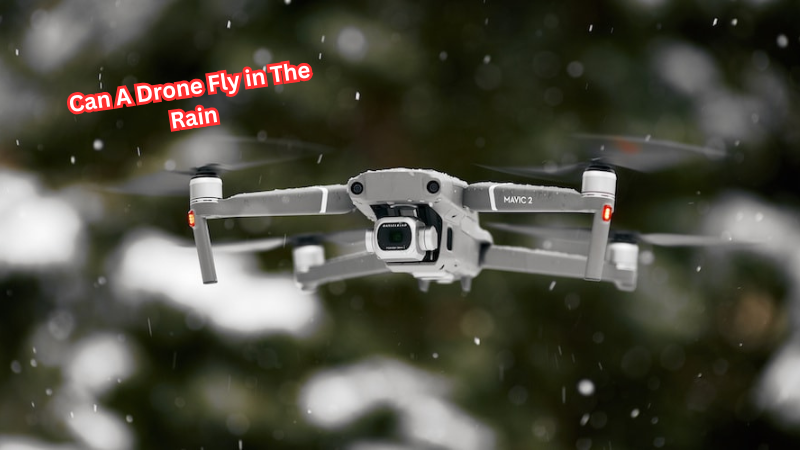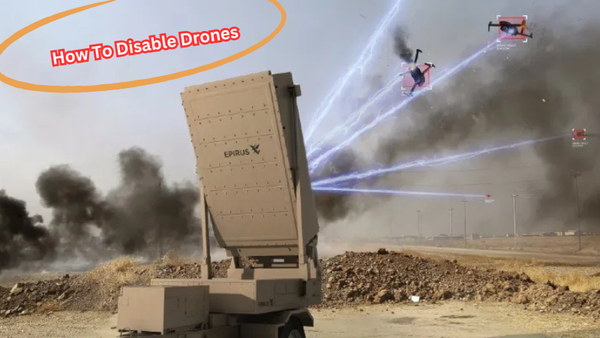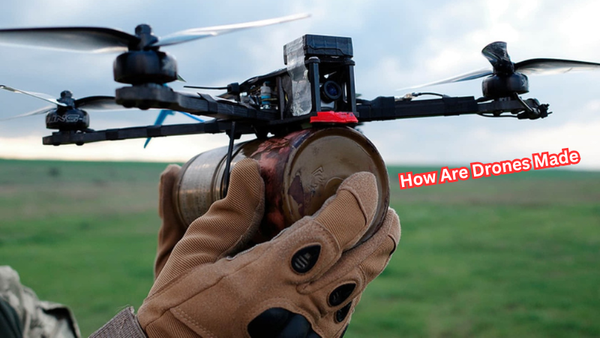Drones are no longer just high-tech gadgets; they’ve become essential tools across various industries, from photography to security. With their ability to capture stunning aerial views, their popularity continues to soar.
However, as drones take to the skies, many enthusiasts find themselves wondering about appropriate and legal flight zones, particularly over places like hotels. Flying a drone over a hotel may seem like a simple task, but it comes with a range of complexities. Questions arise about legal regulations, airspace restrictions, and respecting the privacy of hotel guests.
Additionally, ethical considerations must not be overlooked in such settings. Understanding these factors is crucial for every drone pilot. This post explores the key aspects of responsible drone operation in hotel environments, ensuring safe and respectful flights.
Federal Aviation Administration (FAA) Regulations
Before launching a drone over any area, it’s crucial to understand and follow the rules set by the FAA. In the United States, the FAA regulates drone operations under Part 107 of Title 14 of the Code of Federal Regulations. As per these regulations, drones must be operated within line-of-sight at all times and not exceed an altitude of 400 feet above ground level (AGL).
When it comes to flying over hotels, there are two key factors to consider: proximity to airports and airspace restrictions.
Proximity to Airports
Hotels often have helipads or small airstrips for private planes, making them potential areas for air traffic. The FAA has designated certain areas around airports as "no-fly zones" for drones, known as Temporary Flight Restriction (TFR) zones. These TFRs are put in place to ensure the safety of manned aircraft and prevent collisions between aircraft and drones.
As a drone pilot, it's essential to check for any TFRs in the vicinity of the hotel you plan to fly over. This information can be found on the FAA’s B4UFLY mobile app or aviation mapping websites such as SkyVector and AirMap.
Airspace Restrictions
In addition to proximity to airports, airspace restrictions must also be considered when flying over hotels. Certain areas are under restricted airspace due to security reasons or ongoing events such as sporting events or concerts. It's crucial to check for any airspace restrictions in the hotel's vicinity before launching a drone flight.
Can You Fly Drone Over A Hotel?
Now, the big question: can you fly a drone over a hotel? The answer is not as straightforward as one might think. In general, drone flights over public spaces like hotels are allowed, as long as they follow FAA regulations and do not pose a safety threat to people or property.
However, there are certain considerations to keep in mind when flying over a hotel. Here are some key points to keep in mind:
Respect the Privacy of Hotel Guests
One of the most crucial considerations when flying a drone over a hotel is respecting the privacy of its guests. While it may be tempting to capture stunning aerial footage, it's essential to remember that hotels are private spaces where people expect their privacy to be respected.
As a responsible drone pilot, it's crucial to take into account any potential risks or discomfort that may arise from flying a drone near hotel guests. It's recommended to maintain a safe distance and avoid directly hovering over people or their personal space without their prior consent.
Additionally, it's important to understand local laws regarding photography and filming in public places. Some areas may have stricter regulations, and it's vital to adhere to them to avoid any potential legal issues.
Follow Hotel Guidelines
In addition to respecting the privacy of hotel guests, it's also important to follow any guidelines set by the hotel itself. Some hotels may have their policies regarding drone flights on their premises, and it's essential to respect these rules.
It's recommended to contact the hotel management before flying a drone over their property and inquire about any specific guidelines or restrictions they may have in place. This will not only ensure a safe flight but also prevent any potential conflicts with hotel staff or guests.
Be Aware of Noise Disturbance
Drones can be loud, especially when flying at lower altitudes. As hotels are often places of relaxation and peace, it's important to consider the noise impact on hotel guests when flying a drone overhead.
It's recommended to fly at higher altitudes or use quieter drones when flying over hotels to minimize any potential disturbance. Additionally, it's crucial to be mindful of local noise ordinances and avoid flying during quiet hours or in areas with noise restrictions.
Consider the Time of Day
The time of day can also play a role in whether or not you should fly a drone over a hotel. If shooting during the day, ensure that your flight does not interfere with any events or activities taking place on the hotel property. It's essential to respect the privacy and enjoyment of hotel guests and not disrupt their experience.
If planning to fly at night, it's important to consider the safety and security concerns that come with flying in low-light conditions. It's recommended to communicate with the hotel management and local authorities before launching a drone flight at night.
What are the Ethical Considerations?
While following FAA regulations and respecting the privacy of hotel guests are crucial aspects of responsible drone operation, there are also ethical considerations that must not be ignored. These include the impact of drones on wildlife, cultural and historical sites, and local communities.
Wildlife Impact
Hotels often have beautifully landscaped gardens or natural areas that may attract wildlife such as birds, bees, and other creatures. When flying a drone over these areas, it's important to consider the potential disturbance or harm caused to these animals.
It's recommended to avoid flying directly over wildlife or their habitats and maintain a safe distance. Additionally, it's important to adhere to any local laws or regulations regarding protected species.
Cultural and Historical Sites
Many hotels are located near cultural or historical sites, such as monuments, temples, or ancient ruins. When flying a drone over these areas, it's essential to consider the potential impact on these important sites.
It's crucial to research and understand any regulations in place regarding drone flights over cultural or historical areas. In some cases, drones may not be allowed to fly at all, while in others they may only be permitted with prior authorization from local authorities.
Community Relations
Hotels are often situated within communities where residents live and work. When flying a drone over a hotel, it's important to respect the rights and privacy of these communities.
Drones should not be flown directly over residential areas, and caution should be taken to avoid invading people's personal space. It's also recommended to communicate with the local community before launching a drone flight and address any concerns or objections they may have.
Furthermore, it's important to follow any noise ordinances or regulations that may affect the surrounding community. Drones can be a source of disturbance in quiet neighborhoods, and it's crucial to minimize their impact as much as possible.
Is it Legal to Fly a Drone over Private Property?
While flying a drone over public spaces like hotels is generally allowed, the legality of flying over private property is not as clear-cut. In most cases, if you have the consent of the property owner, it is legal to fly a drone over their land.
However, some states in the US have passed laws that restrict or prohibit drone flights over private property without prior authorization from the owner. It's important to research and understand these laws before launching a flight.
Additionally, it's crucial to respect people's privacy when flying drones over private property. Even with proper authorization, it's recommended to avoid directly hovering over people or their homes without their consent.
Does Responsible Drone Flying Benefit the Industry?
While there may be certain challenges and limitations to flying a drone near hotels, responsible and ethical operations can ultimately benefit the drone industry as a whole. By adhering to regulations and respecting the privacy and rights of all individuals, drones can continue to be used safely and responsibly.
Additionally, building positive relationships with hotel staff, guests, and local communities can help promote understanding and acceptance of drones as valuable tools for various industries.
As the use of drones becomes more prevalent in our society, it's essential to prioritize responsible operations and continually educate ourselves on best practices to ensure safe and ethical flights over hotels.
How Can You Tell if a ‘No Drone Zone' Sign is Legit?
When flying a drone over any area, it's crucial to follow all relevant laws and regulations. This includes respecting designated "no drone zones" where flying a drone may be prohibited or restricted.
One way to identify if a "no drone zone" sign is legitimate is by checking the source of the signage. If the sign comes from an official government agency, such as the Federal Aviation Administration (FAA) in the US or the Civil Aviation Authority (CAA) in the UK, it should be considered legitimate and adhered to.
Additionally, these agencies often have designated maps or online tools that outline specific no-fly zones for drones. These resources can provide more detailed information about restricted areas and help confirm the legitimacy of a "no drone zone" sign. Another way to verify the validity of a "no drone zone" sign is by researching local laws and regulations. Some areas may have specific ordinances or restrictions in place for flying drones, and it's crucial to be aware of these before launching a flight.
Furthermore, if a hotel has posted a "no drone zone" sign on their property, it's important to communicate with hotel staff and management about the reasons for the restriction. They may have specific concerns or regulations in place that are not listed on official government websites or maps.
Who is Responsible for Any Property Damage Caused by a Drone?
The responsibility for any property damage caused by a drone ultimately falls on the operator of the drone. As with any technology or equipment, it's crucial to use drones responsibly and with caution to minimize the risk of damage.
If a hotel guest is operating a drone and causes damage to hotel property, they may be held liable for the cost of repairs. In some cases, if an individual is employed by a hotel and operating a drone as part of their job responsibilities, the responsibility may fall on the hotel itself.
To avoid potential liability for property damage caused by a drone, it's important for operators to carefully plan and execute flights and always follow relevant laws and regulations. This includes maintaining proper control over the drone and avoiding flying near obstacles or structures that could potentially cause damage.
Additionally, it's recommended to have liability insurance when operating a drone, which can help cover the costs of any property damage in case of an accident. It's essential for operators to understand their insurance coverage and any exclusions related to drone operation before launching a flight.
Potential Benefits and Uses of Drones in Hotel Settings
There are numerous potential benefits and uses of drones in hotel settings. From enhancing guest experiences to streamlining operations, drones can serve as valuable tools for the hospitality industry.
Delivery Services
One of the most well-known uses of drones in hotels is for delivery services. Drones can be used to deliver items such as room service orders, towels, or other amenities directly to guests' rooms. This not only saves time and effort for hotel staff but also adds a unique touch to the guest experience.
In addition, drones can also be used for delivering packages or supplies between different areas of the hotel property, reducing the need for employees to travel back and forth.
Security and Surveillance
Hotels have strict security protocols in place to ensure the safety of their guests and employees. Drones can enhance these efforts by providing surveillance and monitoring capabilities from above.
Drones equipped with cameras or sensors can patrol hotel grounds, check for any potential security breaches, and provide real-time footage to security personnel. They can also be used to investigate any suspicious activity or incidents on the property without putting human staff at risk.
Marketing and Advertising
The use of drones in marketing and advertising for hotels has become increasingly popular. Aerial footage captured by drones can showcase a hotel's amenities, views, and surrounding areas in a unique and visually appealing way. This type of content is highly shareable on social media platforms, helping hotels reach a wider audience and potentially attract more guests.
Drones can also be used for live-streaming events or capturing footage of weddings, conferences, or other special occasions hosted by the hotel. This adds an innovative element to event packages and can help promote the hotel's event-planning services.
Inspections and Maintenance
Maintaining a large hotel property can be a time-consuming and labor-intensive task. Drones can assist with inspections and maintenance tasks by providing an aerial view of the property and identifying any potential issues that may require attention.
For example, drones equipped with thermal cameras can detect heat signatures from electrical equipment, allowing staff to identify any faulty or malfunctioning systems before they escalate into larger problems. Drones can also be used to inspect roofs, gutters, and other hard-to-reach areas of the property.
Environmental Monitoring
Many hotels are taking steps towards sustainability and reducing their environmental impact. Drones can aid in these efforts by monitoring and collecting data on energy usage, water consumption, and waste management.
Using thermal imaging technology, drones can also detect any potential leaks or issues with HVAC systems, allowing for early detection and prevention of energy waste. This information can help hotels make more informed decisions about resource usage and implement sustainable practices.
Maintenance of Outdoor Amenities
Hotels with outdoor amenities such as pools, golf courses, or gardens can benefit from using drones for maintenance tasks. Drones equipped with spraying devices can apply fertilizers, pesticides, or herbicides to maintain the health and appearance of these areas.
Drones can also be used for landscaping tasks such as trimming trees or hedges, saving time and effort for hotel staff. This not only improves the overall appearance of the property but also allows staff to focus on other important tasks.
Guest Entertainment
Drones can add a unique element to guest entertainment experiences at hotels. For example, drones equipped with LED lights can provide a captivating light show for guests during events or special occasions. They can also be used for drone racing events or aerial photography workshops.
In addition, some hotels have started offering drone tours of their properties as an alternative to traditional walking or bus tours. This allows guests to see the hotel and its surrounding areas from a different perspective, creating a memorable experience.
These are just a few of the potential benefits and uses of drones in hotel settings. As technology continues to advance, it's likely that we will see even more innovative ways for hotels to utilize this technology.
Tips for Implementing Drones in Hotel Operations
While the use of drones in hotels can offer many benefits, it's important for hoteliers to carefully plan and implement their use. Here are a few tips to keep in mind:
- Understand and follow all relevant laws and regulations related to drone operation.
- Have proper training and certification for drone pilots.
- Consider any potential privacy concerns and address them accordingly.
- Develop standard operating procedures (SOPs) for drone usage within the hotel.
- Regularly maintain and inspect drones to ensure safe operation.
By taking these steps, hotels can safely integrate drones into their operations while maximizing their potential benefits.
Is It Legal for Someone to Shoot Down Your Drone?
While drones offer many benefits for hotel operations, there are also potential risks to consider. One of the biggest concerns is the possibility of someone shooting down a drone. In most cases, it is illegal for someone to shoot down a drone. Under federal law, drones are classified as aircraft, and shooting them down is considered an act of vandalism or destruction of property.
However, it's important for hoteliers to be aware of local laws and regulations regarding drone operations in their area. Some states have passed laws that allow homeowners to take action against drones flying over their property, so it's crucial to understand these rules before operating a drone on hotel grounds.
Ultimately, proper education and precautions can help prevent any conflicts or legal issues related to drone usage. With careful planning and consideration, hotels can reap the benefits of this advanced technology in their operations.
Avoid These Mistakes When Using Drones in Your Hotel
While drones offer many benefits for hotel operations, it's important to avoid some common mistakes that can lead to negative outcomes. Here are a few things to avoid when using drones at your hotel:
- Not following proper training and certification procedures for drone pilots.
- Ignoring local laws and regulations related to drone operation.
- Neglecting regular maintenance and inspections of drones.
- Failing to address privacy concerns and potential conflicts with guests or neighboring properties.
By avoiding these mistakes, hotels can ensure the safe and successful integration of drones into their operations, providing numerous benefits for both the hotel and its guests.
FAQs
Is it generally legal to fly a drone over a hotel?
It is generally legal to fly a drone over a hotel, but you must ensure compliance with state and local laws, as well as FAA rules. Checking airspace regulations and local regulations is essential to avoid legal issues.
What role do local regulations play in drone use near hotels?
Local regulations govern drone use near hotels by limiting drone hovering and usage in certain zones. Always research state and local laws to ensure that your actions comply with specific drone laws in the area.
How do FAA rules impact drone hovering over private properties like hotels?
FAA rules regulate airspace and drone hovering to ensure safety and privacy. These rules, along with state and local laws, determine how drones can be operated near hotels and other private properties.
What should you consider about airspace regulations before flying a drone over a hotel?
Before flying a drone over a hotel, check airspace regulations to ensure you are in an area where drone use is allowed. Violating these regulations, along with ignoring local regulations or FAA rules, can lead to penalties.
Conclusion
Flying a drone over a hotel brings both opportunities and responsibilities. From understanding FAA regulations and local laws to considering privacy and ethical concerns, it’s clear that careful planning is a must for drone operators.
Respecting airspace rules, guest privacy, and hotel protocols is crucial to avoiding legal issues and maintaining ethical standards. Always take the time to research specific regulations and communicate with hotel management to ensure clarity and avoid conflicts.
When used responsibly, drones have the potential to enhance hotel experiences, from capturing breathtaking views to assisting in innovative ways like security or maintenance. By respecting boundaries and operating thoughtfully, you can enjoy the possibilities drones offer while contributing to a safe and respectful airspace.
